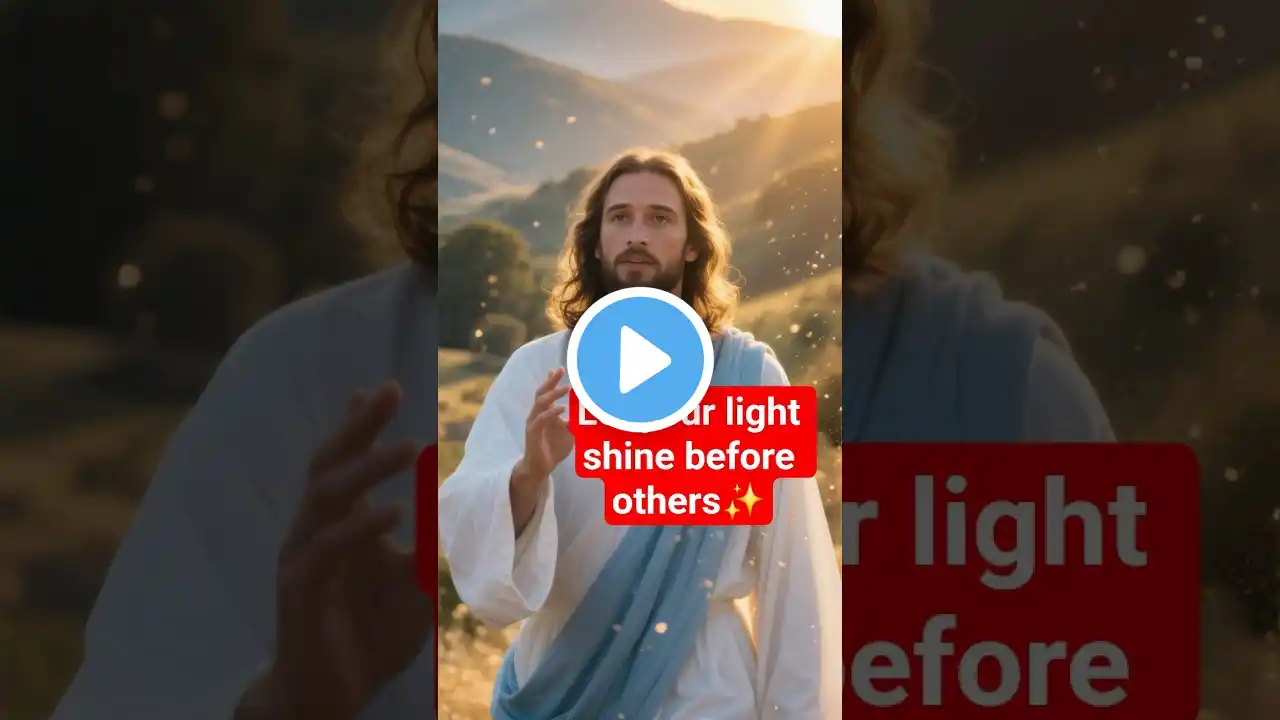
The True Blessing
#bible #faithstories #shorts #biblicalShorts #christianshortsvideo #dailyshorts #spiritualinspiration #biblestories #FaithShorts#truth This is the story of how Jesus, seeing the crowds, went up on a mountain and sat down. His disciples gathered around Him, and He opened His mouth to speak words that would flip the world upside down, words of blessing, hope, and calling. Jesus began with what we now call the Beatitudes: “Blessed are the poor in spirit, for theirs is the kingdom of heaven” (Matthew 5:3). These blessings weren’t about worldly riches or strength but about hearts that recognize their need for God. He honored the meek, the merciful, the pure in heart, and those who hunger for righteousness. This echoes Isaiah’s promise: “But this is the one to whom I will look: he who is humble and contrite in spirit and trembles at My word” (Isaiah 66:2). Jesus didn’t ignore pain. He said, “Blessed are those who mourn, for they will be comforted” (Matthew 5:4). Mourning isn’t weakness—it’s the place where God’s comfort comes rushing in. Paul would later write: “The God of all comfort… comforts us in all our affliction” (2 Corinthians 1:3–4). Jesus redefined blessing not as avoiding pain but meeting God in the middle of it. Jesus declared: “Blessed are those who hunger and thirst for righteousness, for they shall be filled” (Matthew 5:6). This wasn’t about physical hunger but spiritual craving. He was saying, “If you deeply desire God’s ways, He will satisfy you.” David sang the same truth: “As the deer pants for streams of water, so my soul pants for You, O God” (Psalm 42:1). After blessing His followers, Jesus turned to their identity: “You are the salt of the earth… You are the light of the world” (Matthew 5:13–14). Salt preserves, flavors, and heals. Light pierces darkness and reveals truth. Jesus was saying, “Your life is meant to make a difference.” Paul affirmed this: “Shine like stars in the world, holding fast to the word of life” (Philippians 2:15–16). Jesus painted a picture of visibility: “A city set on a hill cannot be hidden… let your light shine before others, that they may see your good works and glorify your Father in heaven” (Matthew 5:14–16). This was never about self-glory but pointing people upward—to the Father’s greatness. As Peter later wrote: “Proclaim the excellencies of Him who called you out of darkness into His marvelous light” (1 Peter 2:9).



















